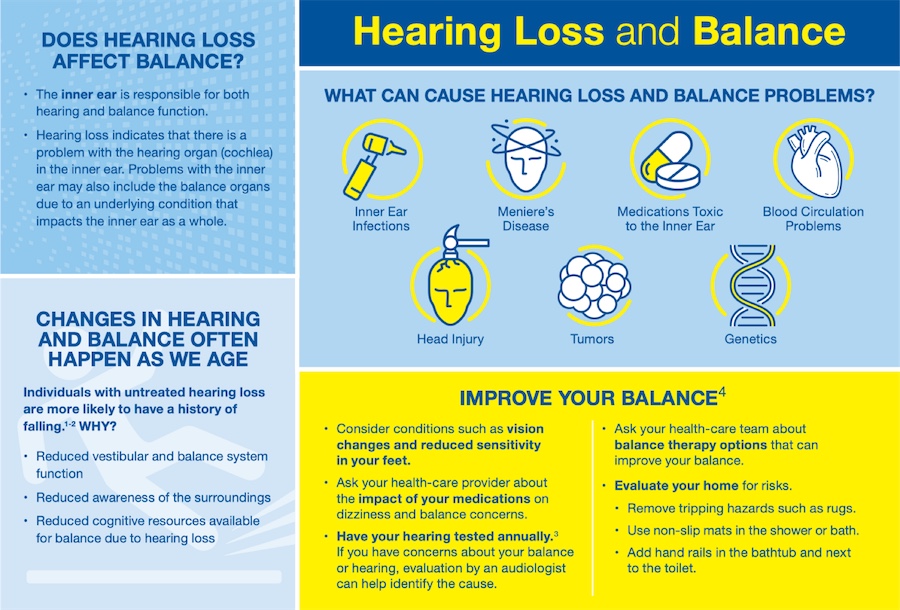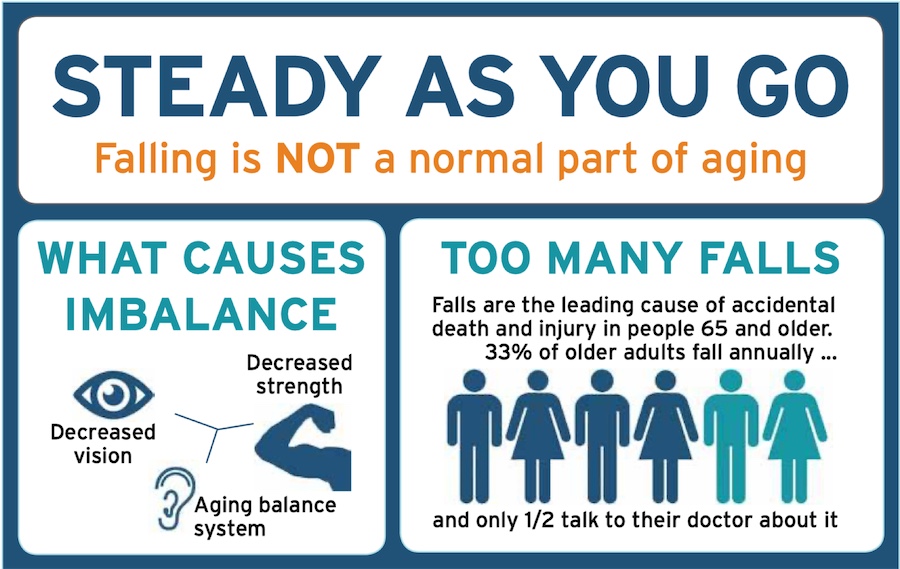Approximately 69 million Americans over 40 suffer from vestibular issues, such as dizziness and imbalance. If you’re one of them, take this Balance Awareness Week (Sept. 19-25) to learn more about the causes of balance disorders and how to manage them
Why it matters
Researchers at Johns Hopkins University discovered that hearing loss is a risk factor for a large (and growing) public health problem: falls. For the record, every 19 seconds, someone in the US falls and breaks a hip (95% of hip fractures are caused by falls).
- Hearing loss dramatically increases the risk of falling, in the following way:
- A 25-decibel hearing loss (mild hearing loss) triples the risk of falling.
- Every additional 10 decibels of hearing loss increases the risk 1.4 times.
- A hip fracture, especially in older adults (60+), dramatically increases the risk of death.
- One out of three adults dies within one year of fracturing a hip — 37 percent of men and 20 percent of women.
- Death from hip fractures is caused by post-surgical complications such as stroke, infection, heart disease, and pneumonia.
 Click the graphic to download this infographic
Click the graphic to download this infographic
Other causes of imbalance and dizziness
- Aging, head injuries, infections in the ear, Ménière's disease, and tumors like acoustic neuroma.
- Medications toxic to the inner ear: There are more than 200 known ototoxic medications that can damage the ear, resulting in hearing loss, ringing in the ear, or balance disorders.
- The most commonly reported ototoxic drugs in clinical use are aminoglycoside antibiotics, macrolide antibiotics, loop diuretics, chemotherapeutic agents such as cisplatin, non-steroidal anti-inflammatory drugs (NSAIDs), quinine, and acetaminophen.
Treatment options
- Benign paroxysmal positional vertigo (BPPV) is the most common cause of vertigo, a false sensation of spinning or movement. For this, physical therapy tops the list. The therapist will likely use the Epley Maneuver to quell your dizziness.
- Medications offer short-term relief but can slow recovery.
- Future treatments: Researchers are investigating implants that restore vestibular function, similar to cochlear implants, and ways to regenerate damaged vestibular hair cells. However, these are still years away from being viable treatments.
 Click the graphic to download the complete version
Click the graphic to download the complete version
The takeaway
- Untreated hearing loss increases your risk of falling, so schedule a hearing screening with an audiologist to determine if your hearing loss needs treatment.
- Keep moving: Physical activity is essential for maintaining balance. Avoiding exercise out of fear only worsens symptoms. Be patient, seek treatment, and keep on moving.
Is hearing loss causing you to stumble?
Call to schedule a free, 15-minute hearing screening with an audiologist. Don't guess about hearing loss. Find out.
If you have hearing loss, your audiologist will explain —
- How much hearing you've lost
- Whether your hearing needs treatment
- The hearing-aid options available to treat your hearing loss
Don't let untreated hearing loss threaten your mobility, health and happiness.

